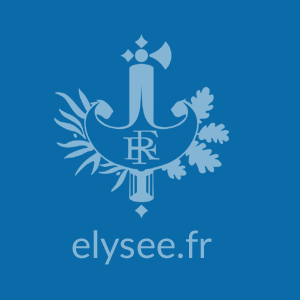MIL OSI Translation. Government of the Republic of France statements from English to French – Published July 26, 2018
The President of the French Republic, Emmanuel Macron, and the President of the Spanish Government, Pedro Sánchez,
In the light of the conclusions of the last European Council meeting of 28-29 June on migration,
BEARING IN MIND that migration and asylum constitute one of the most important challenges facing Europe today and a challenge requiring a comprehensive and multilateral approach;
CONSCIOUS of the serious humanitarian crisis in the Mediterranean as a result of large, albeit globally decreasing, arrivals of people in precarious and precarious conditions;
CONCERNED in particular for the significant increase of arrivals in Europe by the western Mediterranean route in 2017 and 2018;
NOTING that France and Spain share a common vision and view cooperation between their two countries and with other European Union Member States and their southern neighbors as a prerequisite for building a migration model based on solidarity and respect for human rights;
STRESSING the urgency of setting up a precise framework within the European Union to respond to the migration challenge on the basis of genuine European solidarity, accompanied by concrete and practical arrangements, the only way to deal effectively and humanely with the tragedy which we are witnessing in the Mediterranean Sea;
DECLARE AS FOLLOWS:
They share the same strategy to deal with the arrival of refugees and migrants in Europe with humanity and efficiency.
They express their desire to continue their co-ordinated co-operation in following up the conclusions of the European Council of 28-29 June, in order to implement these conclusions quickly and effectively.
They will work to finalize as soon as possible the revision of the asylum package (notably the Dublin Regulation) and the Frontex reform, and to launch without delay the revision of the Returns Directive on the basis of Commission proposals.
They support the reinforcement of Frontex and, consequently, the external protection of the European Union and the Schengen area. The provision of additional human, material and legal resources, the protection of borders and the facilitation of the return of migrants who are not entitled to asylum constitute an indispensable response to the current situation.
They are both convinced that in order to provide a solution to the immediate challenge of welcoming people rescued at sea by vessels other than those of the Coast Guard or those of the southern Mediterranean countries, it is necessary to promote the implementation of in place of an organized approach, designed to manage, after landings that must take place in accordance with international law, the treatment of irregular economic migrants on the one hand and those in need of protection from somewhere else. In this regard, France and Spain declare their support for the efforts of the European Commission to develop, in collaboration with IOM and UNHCR, new instruments, in particular "controlled centers" and "landing platforms". . These centers will strengthen European solidarity with the countries of first reception without prejudice to their responsibility under the Dublin Regulation.
They stress the importance of giving priority to the reception and treatment of migrants in Europe while respecting the principles of responsibility and solidarity. In this area, they highlight the specific case of Aquarius, which allowed the French Office for the Protection of Refugees and Stateless Persons (OFPRA) to work alongside the Spanish authorities as an example of European solidarity. In the short term, we suggest a temporary mechanism inspired by the ad hoc procedure for voluntary cooperation between Member States implemented to accommodate migrants disembarked from the Lifeline boat.
They are willing to strengthen their support and cooperation with countries of origin, transit and destination, including Morocco. We want to achieve a very high level of cooperation with African countries, be it countries of origin or transit. This cooperation must include measures relating to economic development, common security and the fight against trafficking in human beings, in the image of effective action in the Sahel region.
We consider that the means deployed so far, through the EU Emergency Trust Fund, the European Neighborhood Instrument, the European Development Fund, the Sahel Alliance and the Bilateral development assistance should be extended, in a bilateral and European framework, in order to respond in a timely manner to the needs expressed by the affected countries, taking into account the overall contribution of each Member State.
They intend to hold, in conjunction with IOM and UNHCR, a regional meeting in Spain of ministers responsible for migration issues. This meeting will enable European countries and several countries in the Sahel and / or West Africa to analyze migration flows in African countries and to explore possible joint initiatives.
EDITOR'S NOTE: This article is a translation. Please accept our apologies should the grammar and / or sentence structure not be perfect.

